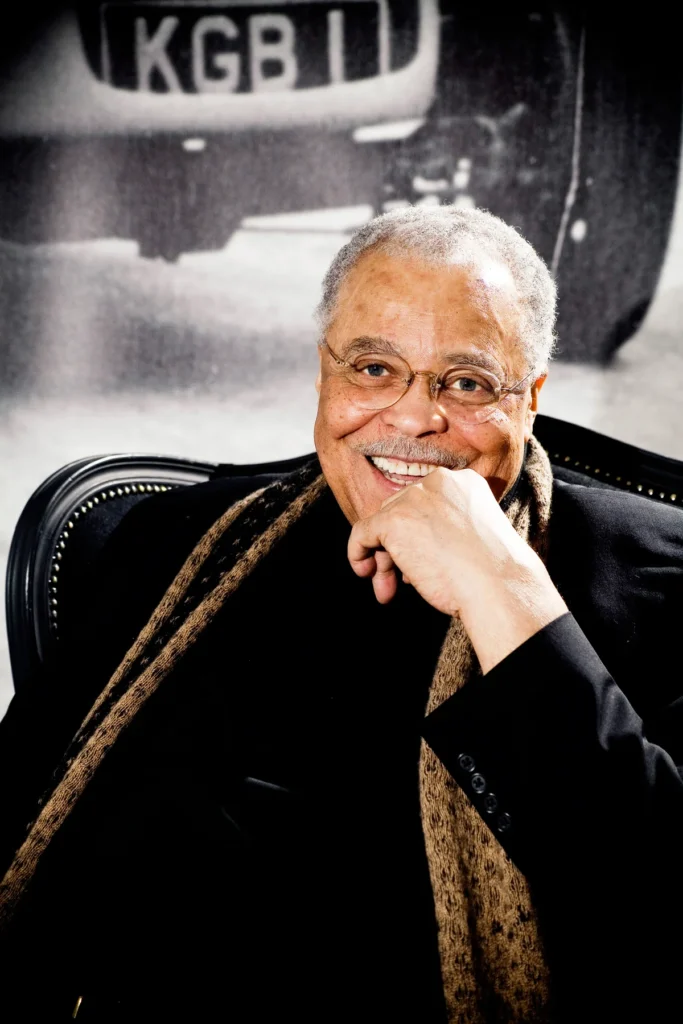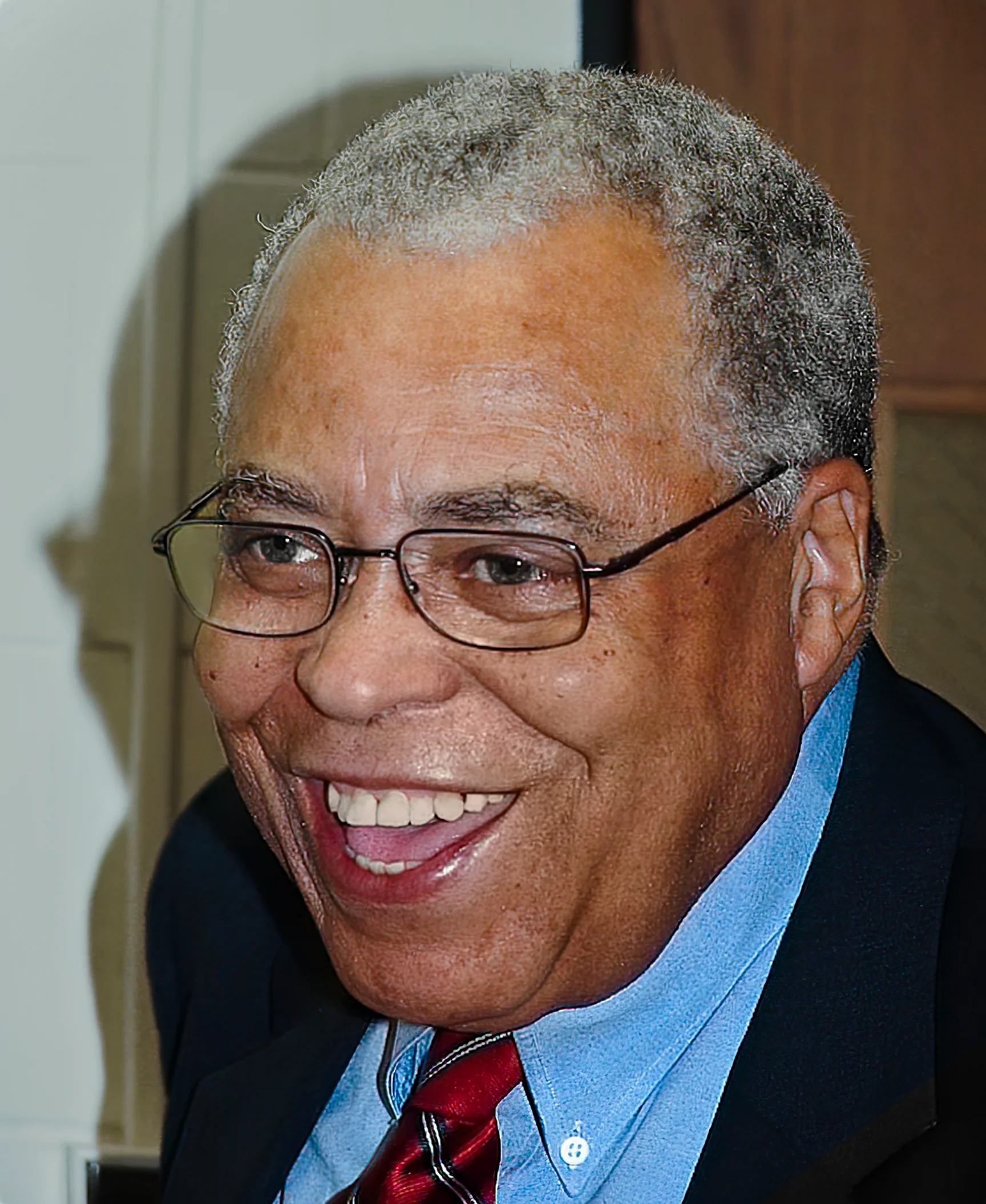James Earl Jones: A Voice Icon
Table of Contents
Introduction to a Legend

James Earl Jones, an iconic figure in American acting, has left an indelible mark on the performing arts through his extraordinary voice and diverse range of roles. Born on January 17, 1931, in Arkabutla, Mississippi, Jones overcame a stuttering impediment in his youth, using his struggles to fuel his passion for acting. He eventually developed a remarkable vocal presence that has captivated audiences worldwide, making his contributions to film, television, and theater truly noteworthy.
With a career spanning more than seven decades, James Earl Jones has garnered a reputation as one of the most respected actors in the industry. His distinctive, deep, and resonant voice became an integral part of his identity, distinguishing him as a powerful narrator in various projects. Notably, he lent his voice to the formidable character Darth Vader in the original Star Wars trilogy, a role that continues to be celebrated in popular culture to this day. Furthermore, his performance as Mufasa in Disney’s The Lion King not only showcased his unique vocal characteristics but also introduced him to a younger generation of fans.
Beyond his voice work, James Earl Jones is recognized for his formidable talent in a plethora of stage and film roles, earning numerous accolades, including multiple Tony Awards and an Honorary Academy Award. His ability to seamlessly shift from dramatic performances in films such as “The Great White Hope” to lighter roles has solidified his status as a versatile actor. Jones’s success is a testament to his resilience in the face of adversity, illustrating how perseverance can lead to monumental achievements in one’s craft. This multifaceted legacy serves as an inspiration to aspiring actors and admirers alike, establishing James Earl Jones as not just a performer, but a true legend in the realm of the performing arts.
Early Life and Overcoming Challenges
James Earl Jones was born on January 17, 1931, in Arkabutla, Mississippi, a small community that would significantly influence his early experiences. Raised by his mother, described as both a domestic worker and a woman of formidable strength, Jones faced numerous challenges during his childhood. The absence of his father, who left the family shortly after his birth, created a dynamic where he often felt isolated and vulnerable, pushing him to seek solace within the world of imagination and storytelling.
One of the most formidable obstacles in Jones’s early life was his struggle with a stutter. This speech impediment gnawed at his confidence during crucial formative years, further exacerbated by the racial tensions of the time and his experiences in a segregated society. As he navigated through the complexities of growing up as an African American in the Jim Crow South, his stutter became not just a personal challenge but a symbol of the broader social struggles affecting countless individuals within his community.
Despite these adversities, Jones demonstrated remarkable perseverance. He overcame his stuttering through various means, including a life-changing encounter with a high school teacher who encouraged him to express himself through the written word. This interaction ignited his passion for acting, steering him toward a path where he could channel his emotions and experiences into performance. His dedication led him to pursue education at several institutions, including the University of Minnesota, where he began to refine his skills as an actor. In overcoming personal challenges, Jones developed a profound understanding of resilience, which later shaped his legacy as an iconic voice and talent on stage and screen.
The Rise on Broadway
James Earl Jones’s illustrious career on Broadway is marked by his remarkable talent and formidable presence, which have made an indelible impact on the theatrical landscape. His ascent in the world of stage began with pivotal performances that showcased both his range and depth as an actor. One of his breakout roles was in ‘The Great White Hope,’ where he portrayed the character of Jack Johnson, an African American heavyweight boxing champion. This performance not only captivated audiences but also earned Jones his first Tony Award in 1969, solidifying his status as a prominent figure in the theater community.
Jones’s ability to convey profound emotions through his voice and physicality transcended conventional acting. His commanding stage presence allowed him to embody complex characters authentically, leaving audiences in awe. Another noteworthy role came years later in August Wilson’s ‘Fences,’ part of Wilson’s ten-play Pittsburgh Cycle, which highlighted the African American experience. In ‘Fences,’ Jones played Troy Maxson, a former baseball player whose dreams were thwarted by racial discrimination. His portrayal of Troy earned him a second Tony Award, affirming his mastery of the stage and his contribution to the evolution of theater.
His performances in these landmark plays illustrate not only his incredible talent but also the thematic relevance of the stories he chose to tell. Jones brought to life issues of identity, race, and the struggle for dignity, resonating deeply with audiences. His ability to engage with the audience on such personal levels set a precedent for future generations of actors. As a legendary figure in American theater, James Earl Jones’s Broadway legacy serves as a reminder of the vital role that stage performances play in shaping cultural narratives and pushing societal boundaries.
Television Acclaim
James Earl Jones, a figure of profound significance in the realm of acting, demonstrated his exceptional range and adaptability in television throughout his illustrious career. Notably, his performances in the made-for-television films “Heat Wave” and “Gabriel’s Fire” earned him critical acclaim and established him as a formidable presence on the small screen. His role in “Heat Wave,” which aired in 1982, showcased Jones in the character of a police officer determined to solve a complex murder case. This performance not only earned him an Emmy Award but also solidified his reputation as an artist capable of delivering powerful and nuanced portrayals.
In “Gabriel’s Fire,” released in 1990, Jones played the lead role of Gabriel Bird, an ex-convict seeking redemption while struggling to adapt to life outside prison walls. This series further illustrated his versatility as an actor, enabling him to convey deep emotional depth and moral complexity. The character’s journey resonated with audiences, and Jones’s performance was lauded for its authenticity and heartfelt sincerity. His work in both productions exemplified his dedication to his craft, as he consistently brought rich and layered characters to life, regardless of the medium.
Jones’s transition from the stage and film to television highlights not only his remarkable talent but also his commitment to reaching audiences through diverse platforms. Whether voicing iconic characters in animated features or embodying powerful figures in live-action performances, he maintained a consistent standard of excellence. As viewers reflect on his diverse body of work, it is evident that James Earl Jones’s contributions to television are an integral part of his legacy, encapsulating the passion and artistry that defined his career.
A Iconic Voice in Film
James Earl Jones possesses one of the most recognizable voices in cinematic history, which has transcended generations and genres. His portrayal of Darth Vader in the ‘Star Wars’ franchise is perhaps the most emblematic example of his vocal prowess. The deep, resonant timbre he brought to the character not only established Darth Vader as a formidable presence but also added profound emotional depth to the role. The iconic line delivery, marked by a unique gravitas, has left an indelible mark on popular culture, contributing to the character’s enduring legacy.
Jones’s contribution to the ‘Star Wars’ universe exemplifies the essential role that voice can play in film. Through his performance, he transformed a masked antagonist into a character that evokes both fear and sympathy. His ability to convey intensity and dimension through voice alone has been widely acknowledged, solidifying his place as a master of voice acting. The impact of his work extends beyond the franchise itself; he has influenced countless actors and voice performers seeking to replicate his success.
In addition to his role as Darth Vader, James Earl Jones also lent his voice to Mufasa in Disney’s beloved animated film ‘The Lion King.’ His performance in this role further showcases his skill in creating memorable characters through voice work. The emotionally charged delivery of Mufasa’s lines, combined with the depth of feeling he infused into each scene, resonated powerfully with audiences of all ages. Even years after the film’s release, his portrayal continues to evoke nostalgia and reverence, highlighting the timelessness of his performances.
Overall, Jones’s iconic voice has played a significant role in shaping the landscape of film voice acting. His distinct vocal style has not only enriched the characters he has portrayed but also inspired admiration and respect among peers and audiences alike. As we remember James Earl Jones, his legacy as a voice actor is firmly cemented in cinematic history.
Awards and Recognition
James Earl Jones, a name synonymous with powerful performances and an iconic voice, has received numerous accolades throughout his illustrious career, celebrating his phenomenal contributions to film, theatre, and the performing arts. His journey began with humble beginnings, but it was his exceptional talent that garnered him widespread acclaim and recognition. One of the pinnacle moments in his career came in 2011 when he was awarded the honorary Academy Award. This prestigious honor served to acknowledge not only his remarkable performances but also his enduring impact on the cinematic landscape, inviting fresh appreciation for his exceptional work.
Furthermore, the renaming of the Cort Theatre to the James Earl Jones Theatre in 2022 solidified his legacy within the Broadway community. This gesture was not merely symbolic; it is a recognition of his groundbreaking achievements in theatre and his commitment to pushing artistic boundaries. Having built a career that spans over six decades, Jones has become an inspiration for emerging artists and an emblem of excellence in the arts. His versatility as an artist is reflected in an impressive array of performances, ranging from dramatic roles to memorable voice work, including his iconic portrayal of Darth Vader in the Star Wars franchise.
In addition to these honors, Jones has been recognized with multiple Tony Awards and other significant accolades that highlight his talent across various mediums. His contributions to the arts have not only set a standard for excellence but have also paved the way for future generations of performers. Each award he received serves as a testament to the rich legacy he has built—a legacy that not only honors his past achievements but also inspires continual growth and excellence within the industry.
Personal Life and Relationships
James Earl Jones, widely recognized for his distinctive voice and impressive talent, led a personal life that intertwined with his public persona, highlighting both his resilience and emotional depth. He was twice married; his first marriage to actress Julienne Marie lasted from 1966 to 1972, while his second marriage to Cecilia Hart, an accomplished actress herself, commenced in 1982 and concluded with her passing in 2016. The impact of these relationships on Jones was notable, as they provided him with companionship, support, and emotional grounding throughout his career.
His relationship with his son, Flynn Earl Jones, born in 1982, was particularly significant. Jones embraced fatherhood with warmth and dedication, influencing Flynn’s own artistic pursuits. The bond between them was shaped not only by their shared interests but also by the challenges Jones faced as he juggled a demanding career while nurturing his role as a father. Jones often emphasized the importance of family, illustrating how these personal connections fortified his emotional resilience, particularly in the face of loss.
The death of his beloved wife, Cecilia Hart, profoundly affected James Earl Jones. Hart was not merely his spouse; she was a partner who shared the joys and struggles of a life in the limelight. Her support throughout their marriage was vital, and her absence left a palpable void. Jones channeled his grief into his art, underscoring his belief that the human experience, including love and loss, greatly enhances creative expression. Through these life experiences, Jones’s character was shaped, allowing him to resonate deeply with audiences around the world. The interplay between his personal life and professional accomplishments enriches the legacy he leaves behind.
The End of an Era
The recent passing of James Earl Jones at the age of 93 marks a profoundly significant moment in the realm of American theater and cinema. Known for his rich, resonant voice and incredible breadth of talent, Jones left a monumental legacy that spans both stage and screen. His contributions have transcended mere performance; they have become integral to the cultural fabric of the arts community.
Jones’s portrayal of iconic characters in film and theater has been influential, shaping the landscape of performing arts for generations. From his unforgettable role as Darth Vader in the Star Wars saga to his powerful performances in classic plays such as Fences and The Great White Hope, he brought depth, authority, and humanity to every character he portrayed. His distinctive voice became synonymous with gravitas, and his ability to convey complex emotions resonated with audiences worldwide.
The void left by Jones’s passing is palpable; not just within the realms of film and theater, but in the hearts of many who admired his profound talent and noble presence. His work inspired countless actors and artists, paving the way for a more diverse representation in the entertainment industry. Jones’s commitment to his craft was evident in every performance, and he was a role model for aspiring performers, demonstrating resilience and excellence in the pursuit of artistry.
As the arts community mourns the loss of such an esteemed figure, it is important to reflect on his contributions that will undoubtedly endure. James Earl Jones’s legacy is one of groundbreaking performance and cultural impact, reminding us that while he may have left us, his artistry continues to live on in the hearts and minds of those he inspired.
Legacy and Cultural Impact
James Earl Jones, an iconic figure in the world of performing arts, has left a profound legacy that continues to resonate across generations. His distinctive voice, often characterized as powerful and authoritative, has not only defined major roles in film and theater but has also influenced an entire spectrum of actors and filmmakers. Jones’s performances, infused with emotion and depth, serve as a benchmark for excellence in acting, showcasing the transformative power of a well-crafted voice in storytelling.
One of the most notable aspects of his legacy is the impact of his role as the voice of Darth Vader in the “Star Wars” franchise. This role solidified the character’s menacing presence and contributed significantly to the cultural fabric of cinema. Jones’s rich, resonating tone became synonymous with the character, demonstrating how a single performance can shape a narrative and leave an indelible mark on popular culture. His ability to convey complex emotions with mere intonations has paved the way for future voice actors who aspire to achieve similar heights in their careers.
Beyond his iconic roles, James Earl Jones’s life story is a testament to resilience and determination. Despite facing personal challenges, including a speech impediment during his youth, he exemplified the power of perseverance. His journey from a young boy in Mississippi, struggling with his voice, to a celebrated actor is not only inspiring to aspiring performers but also serves as a motivation for anyone striving to overcome obstacles. Jones’s success encourages individuals to embrace their unique narratives and triumph over adversity, reinforcing the belief that greatness can emerge from the most challenging circumstances.
In summary, the legacy of James Earl Jones encompasses much more than his remarkable body of work; it embodies the spirit of perseverance and artistic excellence. His influence will undoubtedly continue to inspire future generations in the arts, ensuring that his remarkable contributions are celebrated for years to come.
THE END: Celebrating a Timeless Voice
James Earl Jones’s remarkable career has undoubtedly left an indelible mark on the world of film and theater. As we reflect on his extraordinary life, we are reminded not only of his exceptional talent but also of the resilience he demonstrated throughout his journey. From his humble beginnings to becoming one of the most recognizable voices in the entertainment industry, Jones has set a standard for excellence that continues to inspire countless artists and audiences alike.
His iconic performances span a wide range of genres, showcasing his ability to imbue each role with depth and authenticity. Whether portraying the painstakingly formidable Darth Vader in the Star Wars series or bringing the character of Mufasa to life in The Lion King, Jones’s contributions to the arts are both significant and varied. His voice is not merely a tool for communication; it serves as a powerful instrument that conveys emotion, gravitas, and complexity, resonating with individuals across generations.
Moreover, Jones’s journey reflects the importance of perseverance. He overcame various challenges, including a speech impediment in his youth, to achieve his dreams. This kind of resilience is a testament to the human spirit and a source of motivation for many aspiring actors. By sharing his experiences and embracing his unique voice, he has paved the way for future generations to pursue their passions without hesitation.
As we celebrate James Earl Jones, let us honor not only the roles he has played but also the legacy he has created. We are encouraged to remember and appreciate the immense impact of his work on the film and theater landscape. His artistry continues to echo, reminding us that true talent is timeless and transcends the boundaries of age and genre.

